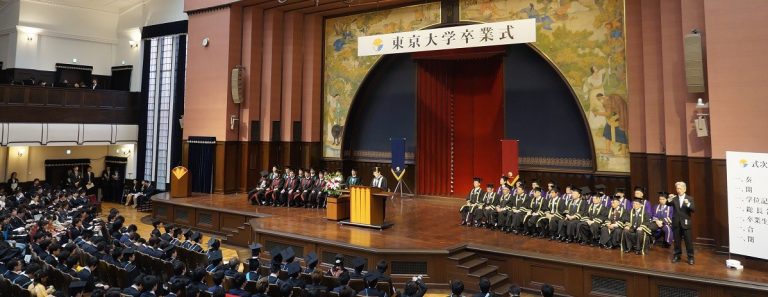
The National Seven Universities, a group of institutions founded and ran by the Empire of Japan until the end of World War II, lead Times Higher Education‘s (THE) ranking of universities in Japan.
University of Tokyo (UTokyo) tops the inaugural THE‘s Japan University Rankings 2017, based on the teaching and learning environments the institutions offer students. In close pursuit at second and third place are Tohoku University and Kyoto University respectively.
Also known as “Imperial Universities” – the Japanese equivalent of the “Ivy League” – the remaining four leading the list are Nagoya University (at joint fourth place with Tokyo Institute of Technology), Osaka University (sixth place), Kyushu University (seventh place) and Hokkaido University (eighth place).
The results reveal the ingrained characteristics of the Asian nation’s higher education system, such as the big influence corporations have on its varsities.
“Students don’t pick a job – they pick a company, such as Toyota or Sony. To get a job at one of those, you have to get into a really well-known university,” James McCrostie, an associate professor at Daito Bunka University says.
“If you go to a no-name small, private university, you will work for a no-name small, private company…If you go to the University of Tokyo, you’ll get your pick.”
Japanese corporate culture trickle down to university classrooms, too.
According to Susan Burton, a PhD student at the University of East Anglia’s School of Literature, Drama and Creative Writing, who spent more than a decade in Japanese schools, there is usually no lively debate between teacher and students in lecture halls.
She says in a way, this makes Japan’s higher education system “… a perfect system for producing educated and obedient workers for Japan Inc”.
Wall Street Journal/THE‘s US college rankings of over 1,000 US universities and colleges, published in September 2016, is the model behind the Japan rankings.
Four broad “pillars” – resources, engagement, outcomes and environment – make up the primary criteria in measuring what over 400 Japanese universities can offer students in the ranking.
Here are the top 10 institutions in THE‘s Japan University Rankings 2017:
| No | Institutions | Prefecture |
|---|---|---|
| 1 | University of Tokyo | Tokyo |
| 2 | Tohoku University | Miyagi |
| 3 | Kyoto University | Kyoto |
| 4 | Nagoya University | Aichi |
| 4 | Tokyo Institute of Technology | Tokyo |
| 6 | Osaka University | Osaka |
| 7 | Kyushu University | Fukuoka |
| 8 | Hokkaido University | Hokkaido |
| 9 | University of Tsukuba | Ibaraki |
| 10 | Waseda University | Tokyo |
While the National Seven Universities rank in the top 10 percent for their resources (income, research output and students’ scores in the national mock university entrance exam), and reputation among academics and employers, they are not very international.
Less prestigious schools have a more international presence on their campuses, such as Akita International University, for developing students’ abilities to global standards, and Ritsumeikan Asia Pacific University (APU), for its proportion of international students and faculty members.
“If the number of international students is [only] 10 to 20 percent, they become a minority. Any classes taught in English become translations of material intended for Japanese students and are not appropriate for international students,” APU president Korenaga Shun says.
On the other hand, being highly international “brings cultures, values and language from around the world into our classrooms and research”.
Liked this? Then you’ll love these…
US-Japan institutions team up to train tourism management experts
@realDonaldTrump helps Japanese student prepare for college entrance exams







